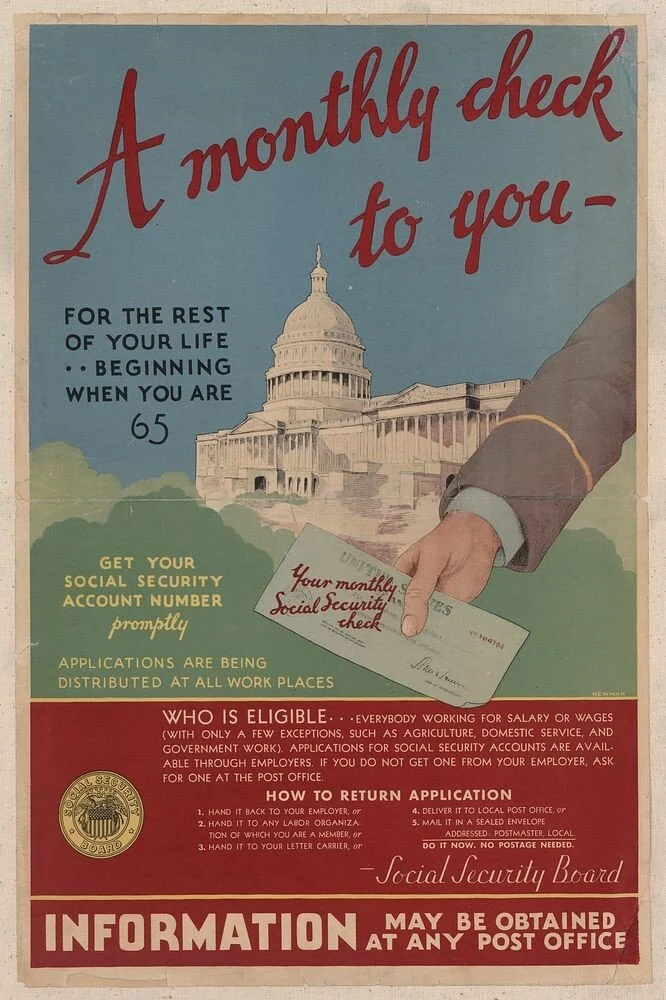Ex Libris Juris - A Blog
What’s behind the name?
“Ex Libris Juris” is Latin for “from the books of law” and much of the information here will relate to the legal information collected and curated by the Law Library.
Additionally, “Ex Libris” has long appeared on bookplates – labels appearing inside the front cover of books – and has acquired the connoted meaning “from the library of” to show ownership of the book.
Using this connotation, the phrase becomes “from the library of law” and better describes the posts about digital resources, event announcements, and research tips that will regularly appear here.
Subscribe
Recent Publications
Today marks the 90th anniversary of the Social Security Act, signed into law on August 14, 1935, by President Franklin D. Roosevelt amid the economic devastation of the Great Depression. Formally known as Old-Age, Survivors, and Disability Insurance, the act established the foundation for America’s first permanent national old-age pension system. It was part of Roosevelt’s broader New Deal—a series of reforms designed to bring relief and economic security to Americans struck by unemployment, poverty, and uncertainty following the stock market collapse of 1929. On this anniversary, as Social Security continues to deliver on its promise to millions, securing its future remains a defining test for American policymakers and society alike.
Mmmm! Ice cream! For many of us, just the thought of ice cream conjures up memories of frosty sweetness on warm summer nights, the familiar ring from the bells of the ice cream truck as it rolled down the street, and sticky fingers as the melting ice cream dripped down the side of the crispy cone. Lucky for us, ice cream is perfectly legal (and not to mention absolutely delicious!), and we don’t need a special day to celebrate its yumminess (but we can!) In fact, we can celebrate it all month long because July is National Ice Cream Month. Additionally, the third Sunday of July has been designated National Ice Cream Day. This year, the holiday falls on Sunday, July 20.
The striking of the moratorium on state AI regulation is good news for many states, including Texas, that have already enacted laws to police AI. In June, Governor Greg Abbott signed into law the Texas Responsible Artificial Intelligence Governance Act (Act). The Act, presented as HB 149, established regulations for the use of AI within Texas. The Act was designed to facilitate and advance “responsible development of [AI] systems,” protect individuals from foreseeable risks associated with AI, and create transparency in the development or use of AI, including such use by state agencies.
When most people hear “law,” they imagine courtroom dramas or criminal trials. The truth is, legal issues impact our daily lives much more than we realize—especially civil law. From leases to medical bills, knowing basic legal terms can protect your rights, help you make informed decisions, and prevent costly mistakes.
Each October, libraries across the Texas Gulf Coast unite for Gulf Coast Reads Month, a regional reading initiative that invites communities to share in the experience of reading and discussing the same book. Your vote is needed to help pick the next Gulf Coast Reads selection!






